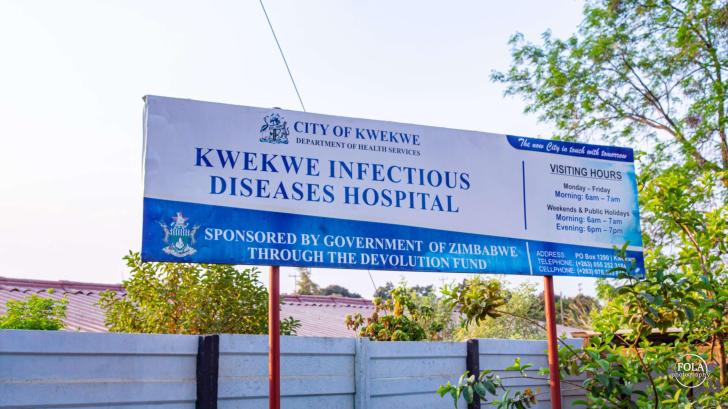News / National
Silicosis kills 15 in Kwekwe
01 Jun 2025 at 14:48hrs | Views

Kwekwe General Hospital has reported a troubling rise in silicosis-related deaths, with at least 15 people succumbing to the incurable lung disease since the beginning of 2025.
Dr. Bruce Mhondiwa, Acting Medical Superintendent at Kwekwe District Hospital, confirmed the alarming figures to The Midweek Watch, noting that silicosis cases are on the increase and remain a serious public health concern.
"Silicosis has become an elephant in the room and it is a condition which cannot be reversed," Dr. Mhondiwa said. "So far, 15 patients have died of silicosis since January this year at Kwekwe hospital alone."
He highlighted a major challenge in diagnosing silicosis, explaining that its symptoms closely mimic tuberculosis (TB), which leads to many cases going unreported or misdiagnosed. "Silicosis is closely linked to tuberculosis and as such, some cases go unreported since most of them are being diagnosed as tuberculosis. That is the major worry because people are failing to diagnose the disease early, often confusing it with tuberculosis, which can be treated," Dr. Mhondiwa added. "Late diagnosis means some patients die without knowing they had silicosis."
The disease, caused by prolonged inhalation of fine silica dust, is common among miners. In mining areas, exposure to harmful chemicals such as mercury and cyanide is believed to be exacerbating the condition.
In response to the growing threat, Midlands Provincial Affairs and Devolution Minister Owen Ncube recently addressed miners in Gweru, urging them to take protective measures when working underground. He also called on local Civil Protection Units to intensify awareness campaigns about the dangers of silicosis.
Silicosis is a progressive and incurable lung disease that damages the lungs' ability to function, often leading to respiratory failure. Its rise among miners signals a need for urgent health interventions, improved safety protocols, and greater community education to reduce exposure to silica dust.
Health authorities continue to call on miners and those involved in mining operations to prioritize protective equipment and seek early medical attention if they experience symptoms such as persistent coughing, shortness of breath, and chest pain.
Dr. Bruce Mhondiwa, Acting Medical Superintendent at Kwekwe District Hospital, confirmed the alarming figures to The Midweek Watch, noting that silicosis cases are on the increase and remain a serious public health concern.
"Silicosis has become an elephant in the room and it is a condition which cannot be reversed," Dr. Mhondiwa said. "So far, 15 patients have died of silicosis since January this year at Kwekwe hospital alone."
He highlighted a major challenge in diagnosing silicosis, explaining that its symptoms closely mimic tuberculosis (TB), which leads to many cases going unreported or misdiagnosed. "Silicosis is closely linked to tuberculosis and as such, some cases go unreported since most of them are being diagnosed as tuberculosis. That is the major worry because people are failing to diagnose the disease early, often confusing it with tuberculosis, which can be treated," Dr. Mhondiwa added. "Late diagnosis means some patients die without knowing they had silicosis."
In response to the growing threat, Midlands Provincial Affairs and Devolution Minister Owen Ncube recently addressed miners in Gweru, urging them to take protective measures when working underground. He also called on local Civil Protection Units to intensify awareness campaigns about the dangers of silicosis.
Silicosis is a progressive and incurable lung disease that damages the lungs' ability to function, often leading to respiratory failure. Its rise among miners signals a need for urgent health interventions, improved safety protocols, and greater community education to reduce exposure to silica dust.
Health authorities continue to call on miners and those involved in mining operations to prioritize protective equipment and seek early medical attention if they experience symptoms such as persistent coughing, shortness of breath, and chest pain.
Source - Midweek




























